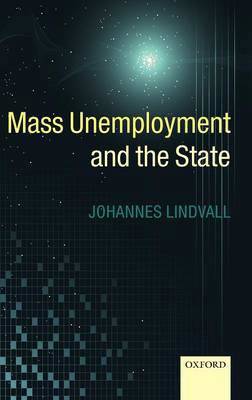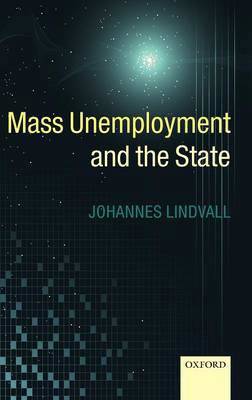
- Afhalen na 1 uur in een winkel met voorraad
- Gratis thuislevering in België vanaf € 30
- Ruim aanbod met 7 miljoen producten
- Afhalen na 1 uur in een winkel met voorraad
- Gratis thuislevering in België vanaf € 30
- Ruim aanbod met 7 miljoen producten
Omschrijving
Mass Unemployment and the State shows that domestic political arrangements--the character of party competition, the relationship between interest organizations and the state, and underlying assumptions about the purpose of political authority--have mattered greatly to the economic and labor market policies that European governments pursued in response to the problem of unemployment from the early 1970s to the 2000s. The book concentrates on four European countries: Austria, Denmark, the Netherlands, and Sweden. All these countries have been celebrated as employment "miracles," but for different reasons, and at different points in time. Low unemployment was the linchpin of political arrangements in West European states in the first decades after the Second World War. When mass unemployment became a threat once more in the 1970s, Austria and Sweden--where post-war political arrangements remained intact--responded more forcefully than Denmark and the Netherlands, where political arrangements were already changing. This set these four countries on different paths, with enduring (and sometimes unexpected) political, economic, and social consequences. Political arrangements mattered to economic policies in the 1970s and 1980s, and to labor market policies in the 1990s and 2000s.
Specificaties
Betrokkenen
- Auteur(s):
- Uitgeverij:
Inhoud
- Aantal bladzijden:
- 240
- Taal:
- Engels
Eigenschappen
- Productcode (EAN):
- 9780199590643
- Verschijningsdatum:
- 15/04/2011
- Uitvoering:
- Hardcover
- Formaat:
- Ongenaaid / garenloos gebonden
- Afmetingen:
- 152 mm x 236 mm
- Gewicht:
- 521 g

Alleen bij Standaard Boekhandel
+ 467 punten op je klantenkaart van Standaard Boekhandel
Beoordelingen
We publiceren alleen reviews die voldoen aan de voorwaarden voor reviews. Bekijk onze voorwaarden voor reviews.










